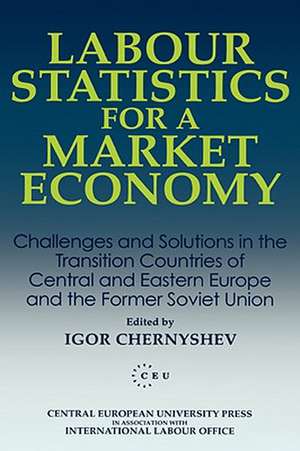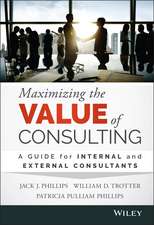Labour Statistics for a Market Economy: Central European University Press Book
Autor Chernyeshev Editat de Igor Chernysheven Limba Engleză Hardback – 31 ian 1995
Preț: 893.80 lei
Preț vechi: 1160.79 lei
-23% Nou
Puncte Express: 1341
Preț estimativ în valută:
171.08€ • 185.90$ • 143.80£
171.08€ • 185.90$ • 143.80£
Carte tipărită la comandă
Livrare economică 21 aprilie-05 mai
Preluare comenzi: 021 569.72.76
Specificații
ISBN-13: 9781858660080
ISBN-10: 1858660084
Pagini: 350
Dimensiuni: 167 x 237 x 24 mm
Greutate: 0.64 kg
Editura: Central European University Press
Seria Central European University Press Book
ISBN-10: 1858660084
Pagini: 350
Dimensiuni: 167 x 237 x 24 mm
Greutate: 0.64 kg
Editura: Central European University Press
Seria Central European University Press Book
Textul de pe ultima copertă
This pioneering work gives an insight into the daily work of the national statistical institutions of the old command economies in their endeavour to meet the challenge of transition to a market-oriented system of labour statistics variables and indicators. Distinct from any other publication with statistics on Central and East European countries and the former Soviet Union, it reveals why and how new statistics are being collected and what still has to be done in order to make their national data compatible with the rest of the world. The authors discuss the problems involved in the measurement of employment (in both the state and the private sectors) and unemployment, the collection of reliable wage statistics, and the development of new economic classifications in line with those internationally recognized and adopted. They also make a number of recommendations on how to adapt ILO international standards in order to meet the above needs.



























